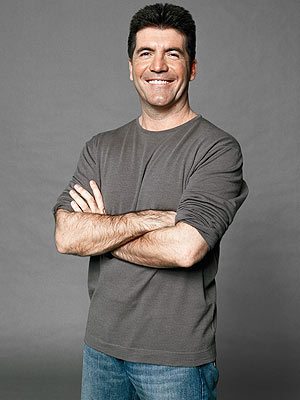
The Case for Simon Cowell
A recent blog on this website entitled “Does Simon Cowell Deserve an Award?” provided me with too much angst and energy to simply restrict my answer to yes or no; arguing my case in the dashing comment boxes. So instead, with tedious pretence, I am going to attempt to eloquently put forward the case for Simon Cowell; a man who in my opinion is the single most important figure in popular music for the past two decades.
First of all though, I’ll explain a bit about me. My favourite bands are Pulp, Orange Juice, The Smiths and Los Campesinos! and as an advocate of all things independent, the very notion of a music mogul dominating the blessed music market should make my subversive heart shatter into tiny little pieces and leave my bony hands picking up the misery. Instead though, ever since the first series of Pop Idol, where Simon really got involved, everything he’s touched has fascinated me to such an extent that I often wonder how pale my life would be without him.
Often painted as the worst paper boy in history, delivering predictable pop after predictable pop and demanding wages that we dare not think about, Mr Cowell, has from the majority of the music industry became the face on the dartboard, a permanent target for sniping critics. In truth though, Simon’s sharp business savvy, devastating accuracy and knack for shaping the contemporary charts make him much more dart than target. In all honesty, the world is his dartboard and he’s averaging 180 every three throws.
The general argument is that Simons backing of mundane pop acts who deal in traditional ballads and contrived imagery do nothing for the music industry and lower our level of consciousness. This is a scarily naïve point of view; in fact almost every act, bar Michelle McManus and Steve Brookstein that Simon has given the platform to perform and then the money to make it, should have been pop stars from the start. Let’s take Leona Lewis; not only does she have one of the most hauntingly pleasant voices in the modern era, she has also forged a reputation as a very nice person and decent writer – it is quite clear that her calling was music-making, in Simon Cowell and the often hated talent show format, she was able to exercise her natural brilliance in a way that also gives her the foundation to build a career, not just settle for a transient stab at the pretentious machines throat.
The songs that Simon chooses for his winners to sing or his darlings to perform aren’t as one dimensional as your cynical Uncle would have you think either. In fact, Joe McElderry’s single “The Climb” is so much better than Rage Against the Machines “Killing In The Name” it’s frightening. It’s melodic, passionate, intimate and perfect. In fact, the whole Christmas Number 1 saga was a hypocritical shambles of gargantuan proportions, in a faux-punk attempt to rock the establishment, Rage became part of it; their recent “Victory Gig” a hollow, shameless, quasi-U2 event was nothing more than a desperate ploy to extend their wavering careers – a stunt that Simon/Satan wouldn’t even be bothered with.
“But The X Factor means that amazing live bands don’t get coverage! What happened to shows like The Old Grey Whistle Test?”
Spare me the nonchalance. If you want to see amazing live bands, go and see them. Just because Simon Cowell has some shows on Saturday nights and his fists tightly wrapped around popular music’s genitalia, it doesn’t mean you can’t inspect the indie scenes private parts. There is plenty of room and their always will be for independent journalism, Gonzo record labels and anti-establishment movements; just be careful that they mean something to you, that the sentiment attached is not underpinned by a need for recognition and a craving for attention – as then you’re just as bad as the people you criticise.
This was where Rage failed and where so many others fail. You can’t hate Simon for the sake of it; he’s just another genius in a long line of geniuses who create, capture and spray glittering talent across Britain and then the globe. For most people, the hatred probably stems from the fact that they envy his teeth, his shining teeth or have something against the charts, the beautiful charts.
Anyway, how can you possibly criticise someone who’s made music popular, made dreams popular, made the very essence of debate essential to the foundation of pop, whose been honest to people, whose existence continues to inspire recording artists and labels, who was a failure first, whose worked from the bottom and made it to the top?!
Now get off your high, aloof, goofy white horse and listen to “The Climb” I know that within minutes, as long as you’ve dispelled all your 21st Century arrogance, you’ll be using your broom as a microphone and your mirror as the audience.
Send your pictures on a postcard.
